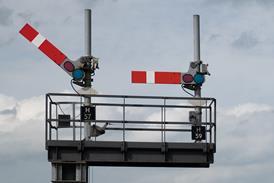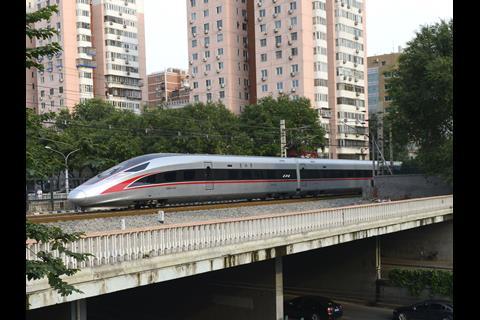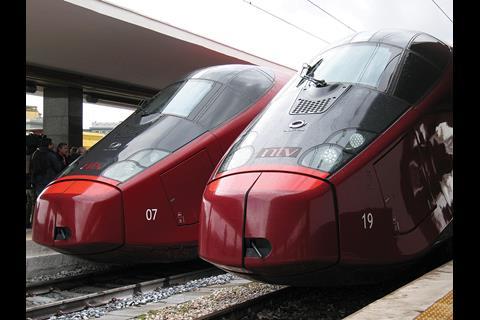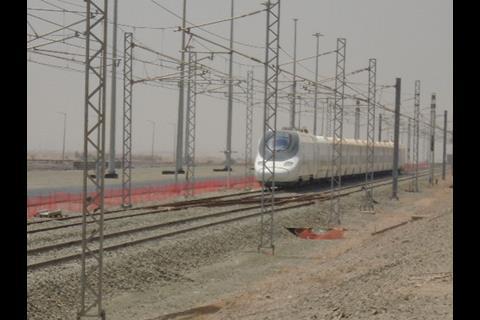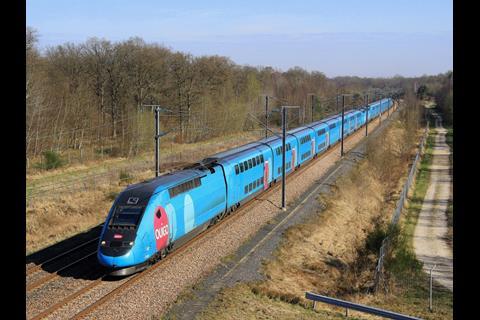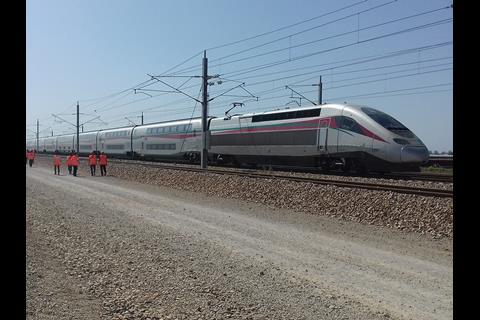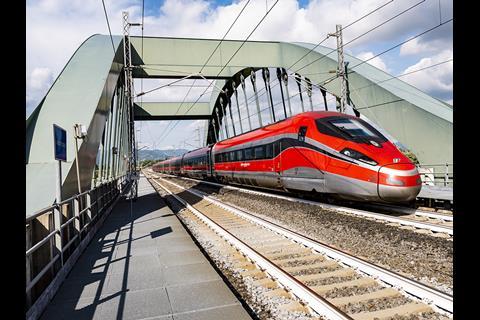INTERNATIONAL: China now has the fastest regular timetabled trains in the world, significantly faster than any other country, according to Railway Gazette’s biennial World Speed Survey, which appears in the July 2019 issue of Railway Gazette International magazine.
Compiled by Jeremy Hartill of the Railway Performance Society, using data for May and June, the 2019 World Speed Survey reveals that several trains in China are now timetabled to average more than 300 km/h between station stops, a milestone which no other country has achieved. This has been made possible by an increase in the maximum speed on the Beijing – Shanghai line to 350 km/h.
The fastest two trains are timetabled to cover the 1 021∙9 km between Beijing Nan and Nanjing Nan stations in 193 min, at a start-to-stop average speed of 317∙7 km/h. Several services between Nanjing and Jinan also average more than 300 km/h.
China has moved ahead so much in the past two years that the fastest train in the 2017 survey, running from Shijiazhuang to Zhengzhou at 283∙4 km/h, does not even merit inclusion among the top Chinese entries this year.
The fastest train service outside China can now be found in Italy, where an Italo open access high speed train is timetabled to cover the 145∙3 km between Milano Rogoredo and Reggio Emilia AV in 32 min, at a start-to-stop average of 272∙4 km/h. Although only by a slim margin, this pushes France into third place. France had been in second place since 2011, with its fastest trains on LGV Est taking the top spot in 2007 and 2009.
Based on the fastest regular services, the top countries in the 2019 survey are China, Italy, France, Japan, Spain and Taiwan, all of which operate at least one train timetabled at an average of more than 250 km/h. Germany is ranked seventh, the UK 13th and the USA 19th.
Morocco (8th) and Saudi Arabia (15th) are included in the World Speed Survey for the first time following the opening of new high speed lines in both countries. Overall, the 2019 survey shows the world’s railways moving forward faster than in 2017. Including international services, there are now 22 countries where passengers can board a train that will average in excess of 160 km/h.
This year’s survey records the end of diesel HST operations on the Great Western Main Line from London to Bristol and South Wales, after more than 40 years of front-line service. The introduction of these 200 km/h trains propelled the UK to second place in the 1977 survey, its best-ever ranking. The UK remains the only country where diesel-powered trains still feature among the fastest services, although the fastest domestic trains are now Southeastern’s ‘Javelin’ services from London St Pancras to Ashford (Kent), on High Speed 1.
‘High speed rail offers a sustainable alternative to air travel, in terms of reduced energy consumption and greenhouse gas emissions’, said Railway Gazette Editor-in-Chief Chris Jackson. ‘This becomes particularly relevant when more and more people are looking to stop flying in response to the climate emergency. Where trains are able to run at average speeds of 250 to 300 km/h, rail becomes an attractive option for journeys of 1 000 km or more, which can be achieved in a comparable journey time of 3 h to 4 h.’




